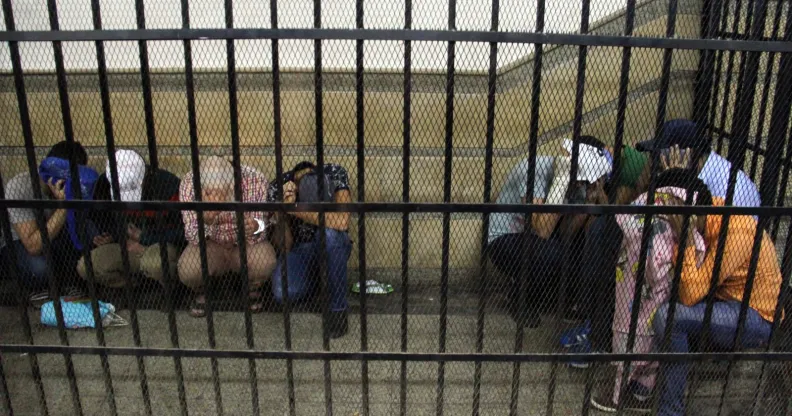Nine arrested in Egypt for ‘debauchery’ after gay sex party accusation

(Getty)
Nine people have been arrested in Egypt accused of “debauchery” for being gay after neighbours accused them of being “weird”.
The men were arrested on Monday, accused of “debauchery” after being accused of being gay.
The Dekheila Prosecution in Alexandria arrested the men after they were reported for being “weird” and frequently visiting an apartment.

(Getty)
According to reports, investigations ensued after an estate agent rented the property for sex parties.
Authorities said the men had put up a wall of secrecy on what they did at the apartment.
They had apparently attempted to use codes to avoid suspicion.
In September last year, the waving of a rainbow flag at a music concert was extensively derided in the press – leading to a dramatic crackdown.
Two of the people arrested at the time, Sarah Hegazy, 28, and Ahmed Alaa, 21, were earlier this month fined and released from jail.

A Pride flag at Mashrou Leila’s concert
The lawyer, Amr Mohamed, said the pair were each fined 2,000 Egyptian pounds, around $113.
According to tweets from the Network, it is not clear when the trial may resume.
The pair were two of dozens arrested amid an anti-LGBT crackdown in Egypt last year.
They were photographed at a concert on 22 September by Mashrou’ Leila which saw 30,000 fans turn out.

(Getty)
A small number of concert-goers held up a rainbow flag at the Lebanese band’s performance.
Related: Egypt bans the media from mentioning gay people as homophobic purge continues
A report released late last year by the Egyptian Initiative for Personal Rights charts the horrific extent of the crisis.
It says: “The EIPR has observed an exponential increase in the number of individuals arrested because of their private sexual practices and/or sexual orientation.
“In what is now known as the as the Public Morality Investigation Unit’s campaign against LGBTQ individuals and men who have sex with men or those perceived as such.”
Data available up until March 2017 shows that arrests have drastically risen in the past few years.

(Getty)
EIPR estimates based on media monitoring that 232 people were arrested between the end of 2013 and March 2017.
The report alleges that morality police were also responsible for fuelling negative stories about LGBT people in order to stoke public fear, manufacturing “the creation of major sex scandals that receive exceptional media attention”.
Late in 2017, the country announced a bid to ban atheism in the hopes that it will stop people from “turning” gay.

